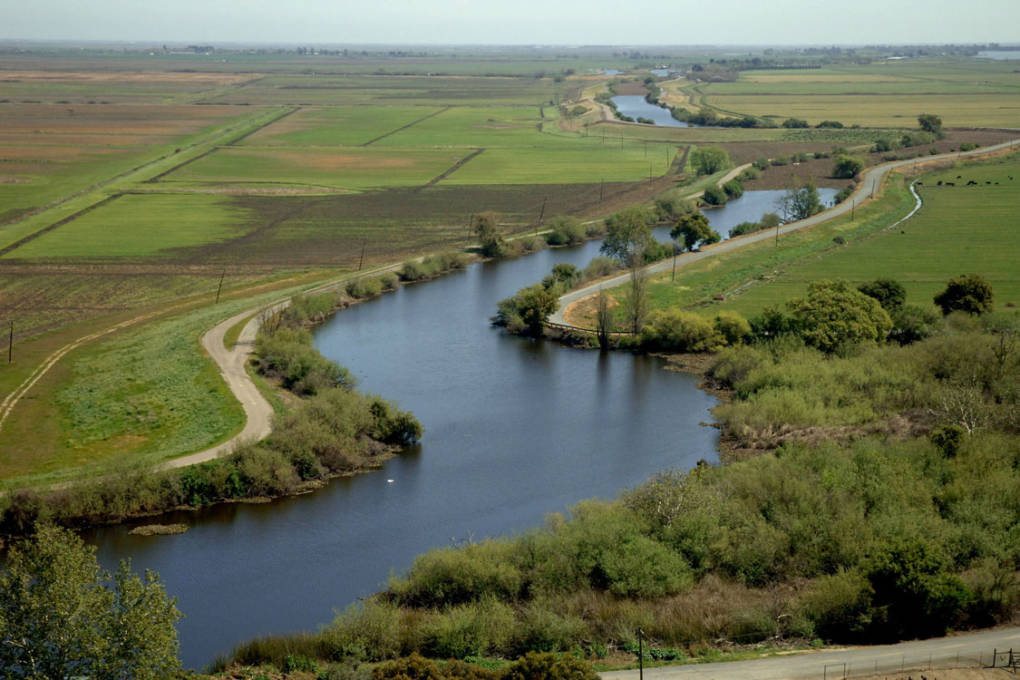Q & A With Brian Fagan, archaeologist and author of Elixir: A History of Water and Humankind

While many work to understand the world’s current water problems with a laser focus on the present, a few, such as University of California at Santa Barbara emeritus professor of archaeology, Brian Fagan, have chosen to look back, at the water engineering efforts of past civilizations. In his recent book, Elixir: A History of Water and Humankind, Fagan finds striking historical parallels to California’s myriad challenges.
He agreed to answer some questions for Climate Watch.
JEREMY MILLER: In previous books such as The Long Summer and The Great Warming you have written about the influence of climate on ancient civilizations. How did you decide to make water the focus of your latest book, Elixir? Did living in California play any part in your decision?
BRIAN FAGAN: I got into the history of water as a result of giving a talk to the California Water Policy Conference on medieval drought, where some participants strongly encouraged me to undertake such a history.
Two experiences have shaped my perspective on water. The first was living in East and Central Africa for six years when I lived among subsistence farmers and saw the problems of drought first hand. The second is, of course, California, which has a classically erratic rainfall pattern that varies greatly one year to the next. In both cases, I learned just how precious water is to us.
MILLER: We tend to look at water issues through a technological lens. Water managers, particularly those in California, typically look to the future for engineering solutions that will keep water flowing. Can we learn anything by looking back?
[module align=”left” width=”half” type=”pull-quote”]We feel entitled to water because it is so easy to access.[/module]
FAGAN: The biggest thing that anchors us to our ancestors in terms of water is that there is a finite supply of water on Earth. This is why farmers have to live with limited water allocations.
The main problem is simple: there is no more water today than there was a thousand years ago. Building more dams won’t solve the problem. The big difference between now and ancient times is that today we have the pumps and capacity to move water over very long distances, also to pump it from deep below the earth. This has made us careless about using it.
MILLER: How so?
FAGAN: We feel entitled to water because it is so easy to access. We can bring it into our homes by merely turning on a faucet. This means that we tend to take cheap, abundant, good quality water for granted. Millions of people throughout the world do not have the same access to water that we do. Like the Romans, we feel entitled to cheap water–and that’s not going to last as populations rise and there is more competition for what will, inevitably, become a market commodity like oil.
MILLER: Are there places where this is happening?
FAGAN: What I have heard is no, but that it will be coming fairly soon in semi-arid lands. Australia may be a place where this will happen, to mention one, perhaps also northern China. And the cost of desalinized water is going to be very high because of rising fossil fuel prices. It’s another commodity that is growing ever scarcer.
MILLER: One issue you explore in Elixiris soil salinization. This is an acute problem today in the Central Valley, but you point out that it is a problem that has its roots in the ancient world, in the very birthplace of irrigation. Can you explain?

FAGAN: Desalinization was a serious problem in Mesopotamia, and the Sumerians of 3000 B.C. were well aware of it. They were careful to flush salt out with water from their fields.
The problem really came to the fore in the first millennium B.C., when large-scale operators like the Sassanians, who were interested in feeding armies and had large labor forces to dig canals, irrigated huge areas and ignored groundwater problems. The result was salinization. This is a continuing and very expensive problem in southern Iraq.
MILLER: In your book, you move beyond the idea that clean water is merely precious from a utilitarian standpoint. You point out that “providing clean water is a charitable and a spiritual act.” How so?
FAGAN: In many ancient societies, providing clean water was an act of religious piety (Islam among others) and other societies like the Maya thought of water in religious terms. An enormous amount of their ritual surrounded water, the storage of water, and the connections between fertility, crops, and life.
MILLER: Did this outlook on water affect how it was managed?
FAGAN: I think that in ancient societies at the village level, people were instinctively careful about water, for they knew it was a finite precious commodity. Egyptian pharaohs and other rulers concerned with crop yields kept very close tabs on village farmers, or at any rate on the yields from their fields, as this was taxation in kind. The main concern was equitable use of water, prudent use of water, and careful control of water allocation in irrigation societies, often at the village level.
I think local decisions are still important today because they can involve many more stakeholders than large industrial scale management exercises. I think that local water districts, boards, and companies are becoming much more amenable to working with one another, with sharing, and allowing many decisions to made at a local level. After all, Cambria’s water needs are very different from Eureka’s. Recognizing that there is a diversity of stakeholders is central for good water management today.

